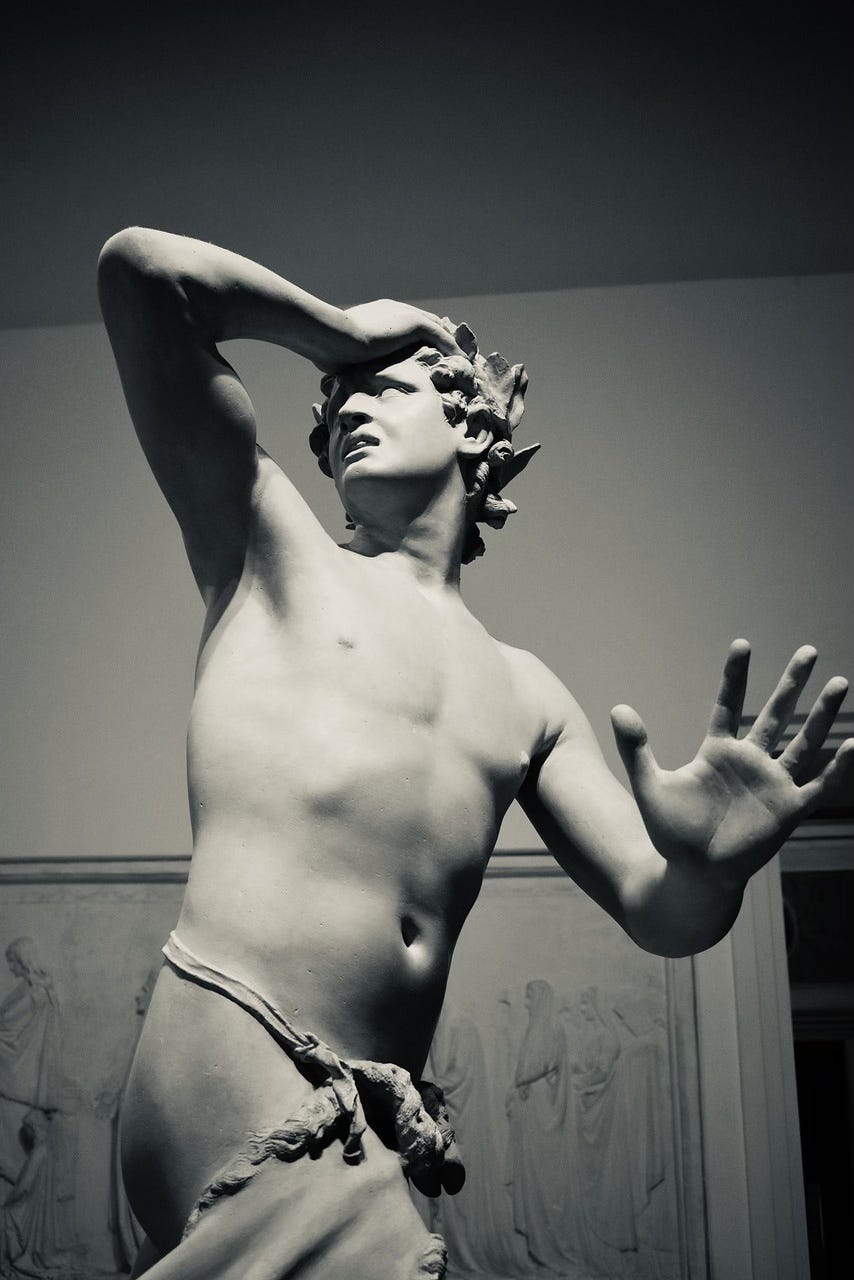With the reported cancellation of the Netflix TV show KAOS (Greek mythology for grownups), I suppose this post has become moot. Consider it a coda or maybe a post mortem. I think it deserved a second season despite my inability to get into it.

KAOS was an odd bird of a show, something very creative, and very much in the spirit of Greek mythology itself.
There is a lot of yuck in it, which is to say much that is graphically violent, ugly, horrible, and just generally off-putting. But then, if you look under the surface of Greek mythology, those elements are absolutely in there as well.
Edith Hamilton, whose Mythology has nurtured the love of Greek tales for generations, liked to think that the ancient Greeks were reasonable, beautiful people with a lovely spirit who originated the idea of civilization, and that their stories were like them: reasonable, beautiful, and lovely.
But you only have to read a brutal play such as the Bacchae to understand that Hamilton’s view was born of a very selective use of the sources.
KAOS dips into the uglier side of Greek mythology in a way that’s good for those with stronger stomachs than mine.
In Episode 2, for example, we find out in a pretty brutal way what happens when Zeus commits adultery. Hera, in this episode, is particularly cold and vicious. Of course, everyone who knows anything about the myths knows that Hera has it in for the human victims of Zeus’s gaze, but to see how a screenwriter and director can bring it to the screen so bluntly is a different experience.
And that’s one of the issues I have with TV and movie versions of the ancient tales.
Because Greek mythology is written down, the imagination can play a dominant role in how much detail one puts in one’s mind when reading about distressing things. The Iliad has heaps of lines describing in minute detail what happens when a warrior wounds another warrior.
It takes one’s breath away.
But you don’t have to dwell on that if you’re reading it, and if you’re listening to it, its still not as bad as watching it happen.
Apropos, another example from KAOS: in Episode 3, we have the character Ariadne, the princess and daughter of King Minos of Crete, taken away from her royal duties (by whom I won’t say) to watch some sort of back-street gladiatorial contest. The violence here is extreme and explicit, and the camera keeps cutting back to Ariadne’s reactions of horror.
So there is an awareness on the filmmakers’ part that what they are showing is or should be shocking. This is admirable, but it doesn’t make watching the violence any easier.
The most promising subplot of KAOS involves the rescue of Eurydice from the Underworld by her devoted husband, Orpheus. The sequences in the Underworld are filmed with a saturated black-and-white filter, which effectively makes the point that death is not a technicolor event.

However, the brutality and mean-spiritedness of the action and dialogue can be intense. The budding romance between Eurydice and a man who (did I get that right?) was once part of the Amazon tribe is a quiet and welcome respite from the yuck, but I hate to imagine what might happen to that relationship in the future as Orpheus comes closer to his wife’s side.
I am reminded of a movie maybe some have seen that was done in the late nineties, in a kinder and gentler time, perhaps (if only!). This was What Dreams May Come, a modern retelling of Orpheus and Eurydice starring Robin Williams as the Orpheus character and the compelling Annabella Sciorra as Eurydice, with Cuba Gooding Jr. and Max van Sydow doing excellent supporting work as spiritual guides of Williams.
Although this movie has some tough concepts such as Hell and suicide, and Williams’ descent to rescue Sciorra is punctuated by some disturbing visual sequences, it is overall an optimistic take on Orpheus and Eurydice, very Hollywood, and therefore much easier to take than authentic Greek mythology.
All that said, I do commend the writers of KAOS for doing a very large amount of bending, blending, and breaking Greek mythology to make it into a compelling story that a modern audience would like to take in. It’s clear a lot of thought went into the show, and there is a cleverness and a kind of inside-scoop attitude (look for the “Tyndareus” brand gas station in Episode 3, for example) in the plot and characters that intrigues me.
I genuinely wish I liked it more.


